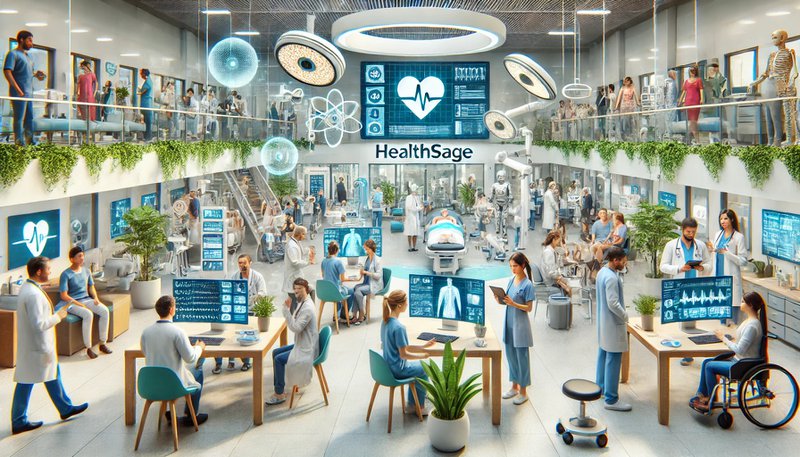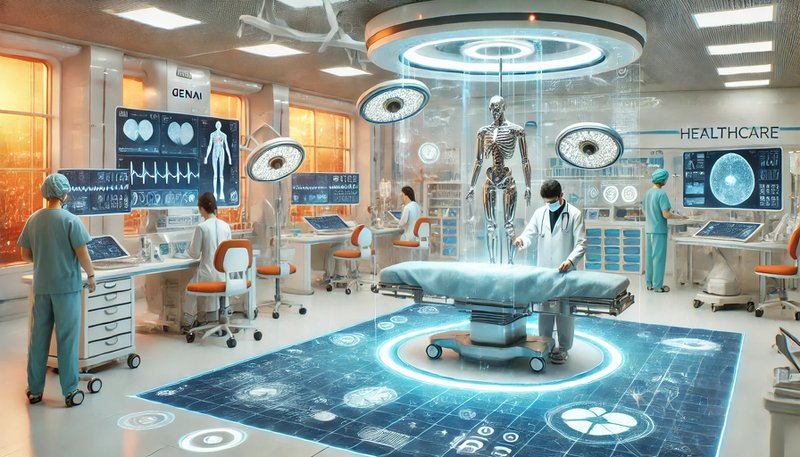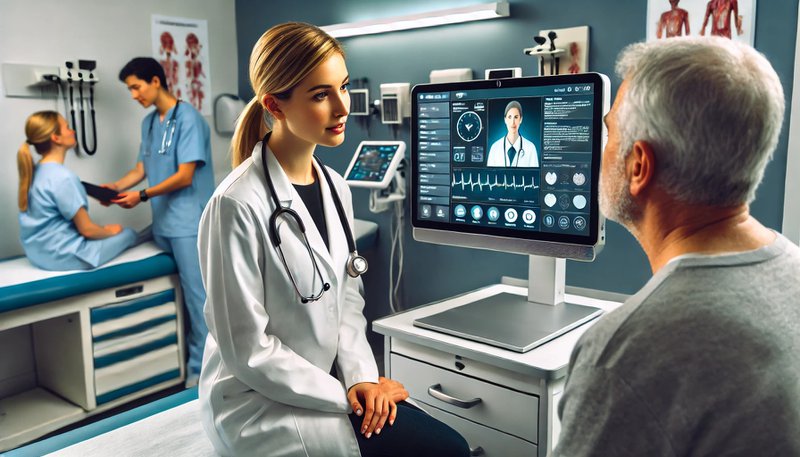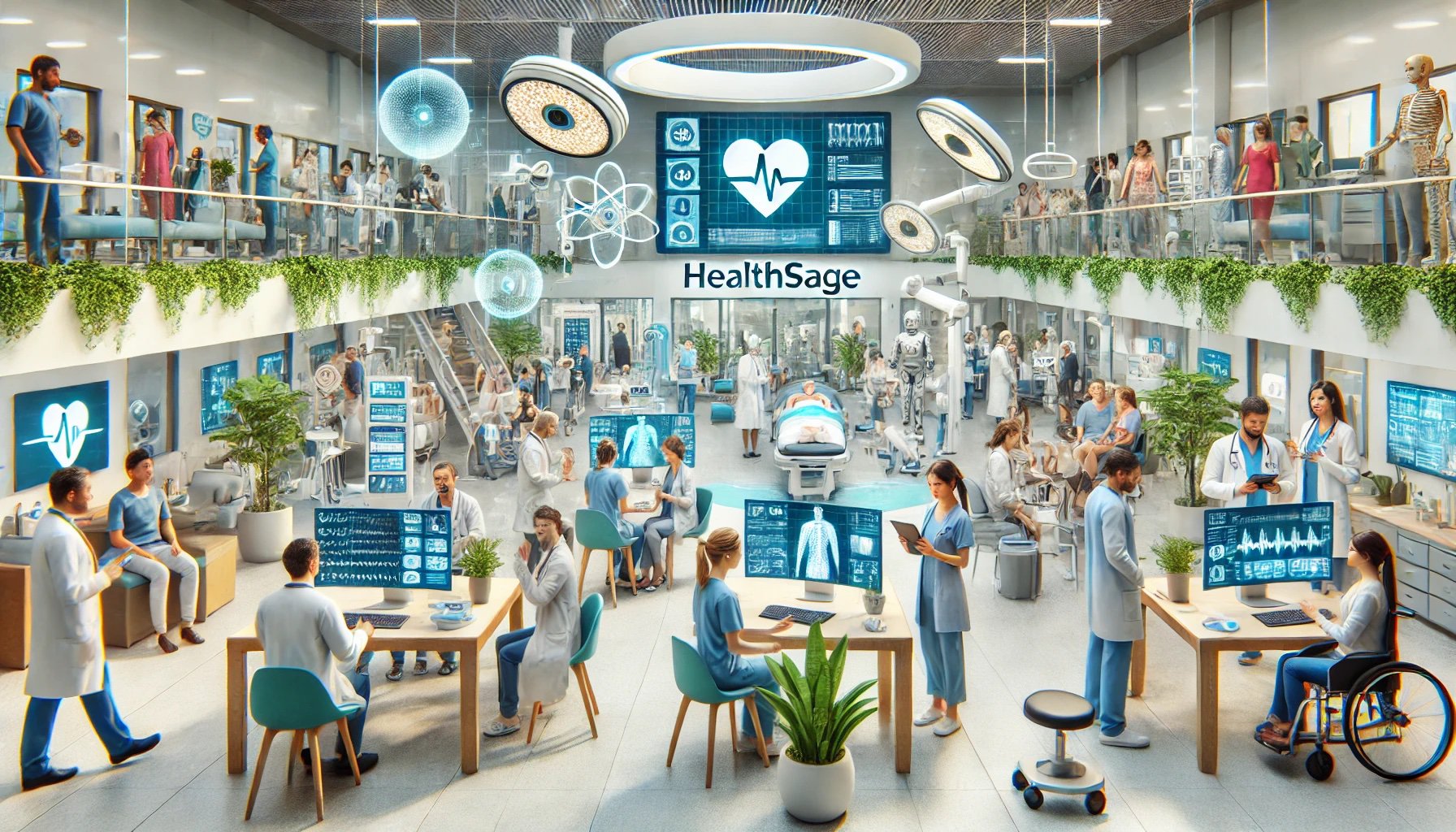Generative AI is transforming industries. At Peak, we’re deeply committed to supporting founders who leverage these cutting-edge technologies to solve real pain points. Many of our portfolio companies have successfully integrated Generative AI (GenAI), and we have made several investments in this exciting space so far.
Therefore, we are excited to share our investment thesis about our latest investment: HealthSage AI, an open-source platform enabling GenAI in Health.

1. Addressing Critical Challenges in the Health Market
The healthcare sector is under immense pressure by escalating costs and significant demographic shifts. Individual healthcare expenses are on the rise, accelerated by an aging population as the percentage of the population aged above 65 years will grow from 9.7% in 2022 to 16.4% by 2050. The World Health Organisation is forecasting a shortage of 10 million health and care workers by 2030. To address these challenges, the sector must not only expand its workforce but also become more efficient.
While the adoption of Electronic Medical Records (EMRs) has improved patient care efficiency, it has also burdened medical professionals with administrative tasks taking up to 30% of their time, diverting their focus from actual patient care. GenAI has the potential to revolutionize healthcare by alleviating these burdens and enhancing patient care, but its adoption has been hindered by lengthy decision cycles and stringent compliance, privacy, and safety regulations. Bridging this gap is crucial, and HealthSage AI is uniquely positioned to do so.
2. The Transformative Potential of Generative AI in Healthcare
AI is already being used in improved diagnostics in radiology and intelligent remote patient monitoring. However, GenAI has an even wider range of potential applications. Such as: automating the capture and structuring of clinical notes, automating billing coding, supporting clinical decision-making, ensuring patient safety, enabling early diagnosis of rare diseases, and empowering patients to understand their medical records with a health coach.
Market forecasts estimate the GenAI opportunity in healthcare to reach $21 billion by 2030.

3. Exceptional team with a proven track record in Health and AI.
Building AI in health is inherently challenging due to slow sales cycles and complex regulatory compliance. This makes the need for an experienced and visionary team even more critical. From our first meeting with the HealthSage AI team, we were impressed by their expertise and vision. Harm-Jan Wessels has successfully built and exited two health businesses, Applicare (sold to GE Health) and Forcare (sold to Philips), and has held leadership positions at both GE and Philips Health. Marcel Alberti brings deep healthcare expertise, having led the Cardiology Informatics department, served as Chief Product & Marketing Officer for Enterprise Imaging & AI, and driven the digital transformation to the cloud for Precision Diagnostics. Despoina Ioannidou adds essential AI health experience, having led R&D teams at TheraPanacea.
This team possesses the knowledge and experience in building Healthtech businesses from zero to one and beyond 😉.

4. A Bold and Practical Approach to Transforming Healthcare
HealthSage AI ambition is to bridge the gap between Health and adopting GenAI. Their infrastructure platform will allow GenAI vendors and applications to be implemented and used in a safe and compliant way by healthcare professionals. These marketplace dynamics require a kickstart approach. To accelerate adoption, the team has developed their own fine-tuned LLM model, Note-to-FHIR, which structures unstructured clinical notes into the FHIR format, offering an immediate time-saving solution for hospitals and health tech vendors.
All elements considered, we couldn't be more thrilled to back HealthSage AI in their journey. The team's expertise and visionary approach position them perfectly to revolutionize healthcare by enabling generative AI. We are confident in their ability to bridge the gap between advanced AI technologies and practical healthcare applications, making a substantial impact on efficiency and patient care.
